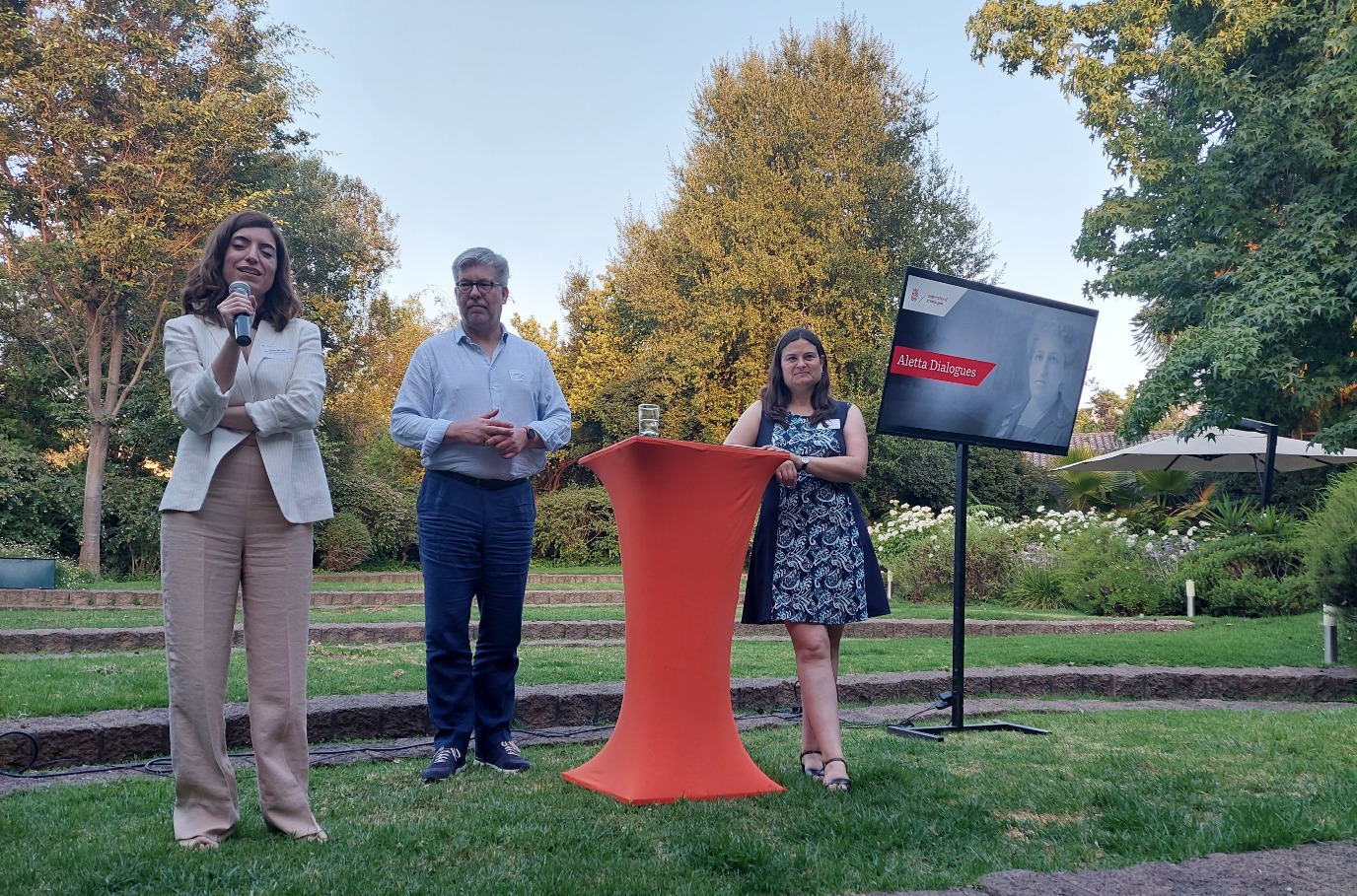Aletta Dialogue in Santiago on diversity and challenges in childhoods
On Thursday 25 January 2024, the University of Groningen (UG) organised an Aletta Dialogue at the residence of the Dutch Ambassador in Santiago. Speakers in front of an audience of around 70 Groningen alumni, partners and representatives of the government were Dr. Mόnica Lόpez Lόpez (UG) and Dr. Claudia Capella (University of Chili).

After opening speeches by Dutch Ambassador Carmen Gonsalves and Groningen rector Prof. Jacquelien Scherpen. Dr. Capella spoke on understanding and addressing unique challenges that children face who have lived traumatic experiences. Dr. Lόpez Lόpez focused on her contribution on LGBT youth and how to connect diversity in childhoods to professions and society.
LGBTQ+ youths experience prejudice and discrimination due to their sexual orientation, gender identity and expression in different social contexts such as the school, the health services or even their own families. These experiences are known to result in severe, and often chronic, mental health challenges. Professionals working in different areas, such as education, health and welfare services among others, have the power to impact LGBTQ+ youths’ wellbeing and promote their resilience through meaningful supportive relationships and connection. Developing welcoming, inclusive, and affirming health and education services that invest in fortifying the connections between youths and the professionals can improve both short-term and long-term outcomes for this marginalized group.
When discussing the researcher's role in improving the wellbeing of LGBTQ+ youth, Mónica also highlighted the importance of listening to marginalized youth in order to learn how to better support them, but also to include them in the process of scientific production. According to Mónica, future research should include participatory approaches that allow the disruption of paternalistic patterns of research and instead help our partners experience psychological empowerment, which can yield positive outcomes such as skill development and building leadership capacity.
In her contribution, Dr. Claudia Capella drew on her extensive expertise and research in child and adolescent clinical psychology. She offered valuable insights into the unique challenges encountered by children who have lived traumatic experiences in Chile. Claudia highlighted the high percentage of children and adolescents who have lived different traumatic experiences. She further emphasised, based on Chilean studies, that child maltreatment and sexual abuse often involves family members and acquaintances. The consequences in psychological and psychical health of children who have suffered these experiences was shown, as well as research carried out by her team that shows the possibility of overcoming these experiences. The importance of psychotherapy, as well as social and family support for recovery, as well as the way professionals in different areas, institutions and public policies can help to face these issues was discussed.
The two presentations were followed by an animated discussion with the audience. After the conclusion of the Aletta Dialogue, the evening was spent networking between alumni and the other guests. All in all, a very successful evening with interesting content, lively discussions and plenty of opportunity to (re)connect with each other.
Aletta Dialogues
The Aletta Dialogues are a series of worldwide public dialogues that pay tribute to Aletta Jacobs’ pioneering spirit, fight for women’ rights, her international outlook, and strong link to our university. Each Aletta Dialogue has a different theme on the crossroads of science and societal challenges. This theme is introduced by two speakers, an expert from UG and a local/regional expert, after which a discussion follows between the experts and the audience.
Aletta Jacobs (1854-1929), is undoubtedly one of the most important and defining people in the history of UG. She was the first woman in the Netherlands to register at a university, as a regular student and the first female doctor in the country. Furthermore, she was a champion for women’s rights like birth control and voting rights. Finally, she also travelled the world (Europe, South Africa, Egypt, Middle East, India, Japan, China and Indonesia) to fight for the position of women (esp. voting rights) and wrote letters about this that were later published. Aletta Jacobs’ pioneering spirit, fight for human rights, her international outlook, and strong link to our university make her the ideal ‘face’ for the worldwide dialogue.
More news
-
15 September 2025
Successful visit to the UG by Rector of Institut Teknologi Bandung
